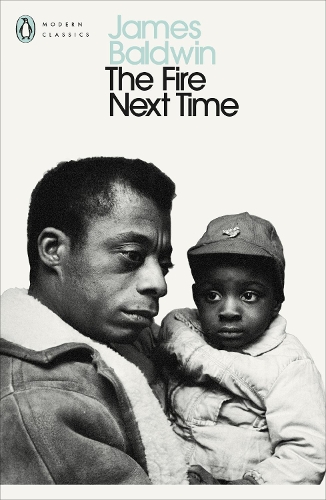
The Fire Next Time
(Paperback)
Available Formats
Paperback
Published: 15th July 2025
Paperback
Published: 25th January 1990
Hardback
Published: 18th February 2025
Publishing Details
The Fire Next Time
By (Author) James Baldwin
Penguin Books Ltd
Penguin Classics
25th January 1990
25th January 1990
United Kingdom
Classifications
General
Fiction
Literary studies: fiction, novelists and prose writers
Classic fiction: literary and general
813.54
Physical Properties
Paperback
96
Width 130mm, Height 199mm, Spine 7mm
79g
Description
'We, the black and the white, deeply need each other here if we are really to become a nation' James Baldwin's impassioned plea to 'end the racial nightmare' in America was a bestseller when it appeared in 1963, galvanising a nation and giving voice to the emerging civil rights movement. Told in the form of two intensely personal 'letters', The Fire Next Time is at once a powerful evocation of Baldwin's early life in Harlem and an excoriating condemnation of the terrible legacy of racial injustice. 'Sermon, ultimatum, confession, deposition, testament, and chronicle ... all presented in searing, brilliant prose' The New York Times Book Review 'Baldwin writes with great passion ... it reeks of truth, as the ghettoes of New York and London, Chicago and Manchester reek of our hypocrisy' Sunday Times
Reviews
Riveting . . . part of Baldwin's enduring power is that he was not a political thinker. He was interested in the soul's dark spaces much more than in the body politic. -- Colm Toibin * Telegraph *
The great poet-prophet of the civil rights movement ... his seminal work * Guardian *
Sermon, ultimatum, confession, deposition, testament, and chronicle . . . all presented in searing, brilliant prose * The New York Times Book Review *
Baldwin writes with great passion ... it reeks of truth, as the ghettoes of New York and London, Chicago and Manchester reek of our hypocrisy * Sunday Times *
A true prophet . . . his thought and its utterance are nothing less than majestical -- Mario Puzo * The New York Times *
Author Bio
Born in Harlem in 1924, Baldwin had an early career as a teenage preacher. He lived in Paris from 1948-1956 and his first novels, the autobiographical GO TELL IT ON THE MOUNTAIN and GIOVANNI'S ROOM established him as a promising novelist and anticipated some of the themes of his later works, such as racism and sexuality. He became a prominent spokesperson for racial equality, especially during the civil rights movement. He lived in France during his last years. Baldwin died in 1987.
